Related Research Articles

Genital modifications are forms of body modifications applied to the human sexual organs, such as piercings, circumcision, or labiaplasty.
Gender-affirming surgery for male-to-female transgender women or transfeminine non-binary people describes a variety of surgical procedures that alter the body to provide physical traits more comfortable and affirming to an individual's gender identity and overall functioning.
Urethral meatal stenosis is a narrowing (stenosis) of the opening of the urethra at the external meatus, thus constricting the opening through which urine leaves the body from the urinary bladder.

A gastrostomy is the creation of an artificial external opening into the stomach for nutritional support or gastric decompression. Typically this would include an incision in the patient's epigastrium as part of a formal operation. When originally devised over a century ago the procedure was completed through open surgery using the Stamm technique. It can be performed through surgical approach, percutaneous approach by interventional radiology, percutaneous endoscopic gastrostomy (PEG) or percutaneous ultrasound gastrostomy (PUG).
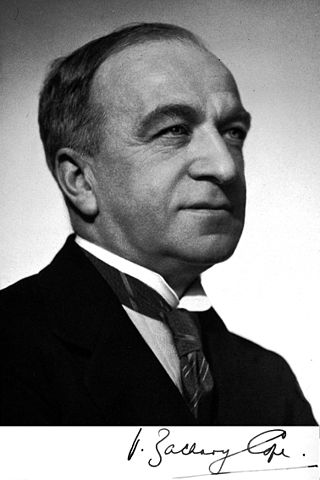
Sir Vincent Zachary Cope MD MS FRCS was an English physician, surgeon, author, historian and poet perhaps best known for authoring the book Cope's Early Diagnosis of the Acute Abdomen from 1921 until 1971. The work remains a respected and standard text of general surgery, and new editions continue being published by editors long after his death, the most recent one being the 22nd edition, published in 2010. Cope also wrote widely on the history of medicine and of public dispensaries.
The Bradshaw Lectures are lectureships given at the invitation of the Royal College of Physicians and the Royal College of Surgeons of England. It is held on alternate years in rotation with the Hunterian Oration.
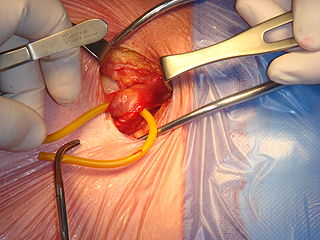
Inguinal hernia surgery is an operation to repair a weakness in the abdominal wall that abnormally allows abdominal contents to slip into a narrow tube called the inguinal canal in the groin region.

Circumcision surgical procedure in males involves either a conventional "cut and stitch" surgical procedure or use of a circumcision instrument or device. In the newborn period, almost all circumcisions are done by generalist practitioners using one of three surgical instruments. In the US, the Gomco clamp is the most utilized instrument, followed by the Mogen clamp and the Plastibell. They are also used worldwide.

Ian Aird was a Scottish surgeon who became Professor of Surgery at the Royal Postgraduate Medical School in London. There he built up a large and productive research department which made particular contributions in cardiac surgery, renal transplantation and the association of blood groups with stomach cancer. He came to national and international prominence in 1953 when he led the teams which performed an operation to separate conjoined twins. His book A Companion in Surgical Studies was among the best selling surgical textbooks of its day. He died suddenly in 1962 at the age of 57.

Morio Kasai was a Japanese surgeon who had a strong interest in pediatric surgery. While Kasai went into practice at a time when pediatric surgery was not an established subspecialty, much of his clinical and research work was related to the surgical care of children. He is best known for devising a surgical procedure, the hepatoportoenterostomy, to address a life-threatening birth defect known as biliary atresia. The modern form of the operation is still known as the Kasai procedure.
Lewis Spitz is a paediatric surgeon who is internationally recognised as a leader in paediatric surgery and is known for his work on congenital abnormalities of the oesophagus, particularly oesophageal atresia, oesophageal replacement and gastroesophageal reflux especially in neurologically impaired children. He championed the plight of children with cerebral palsy and other congenital disorders; demonstrating that appropriate surgery could improve their quality of life. He is the leading authority in the management of conjoined twins and is recognised as the foremost international expert in this field. Spitz is the Emeritus Nuffield Professor of Paediatric Surgery.
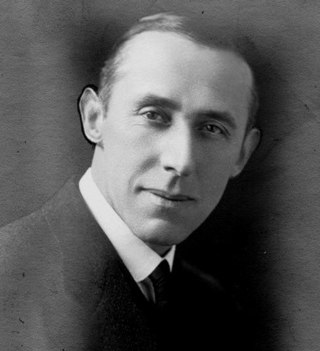
William Francis Victor Bonney FRCP FRCS was a prominent British gynaecological surgeon. He was described by Geoffrey Chamberlain as "a primary influence on world gynaecology in the years between the wars".

Isabella Forshall FRCSE was an English paediatric surgeon who played a leading role in the development of the speciality of paediatric surgery in the United Kingdom. She took a particular interest in neonatal surgery and was instrumental in the establishment of the Liverpool Neonatal Surgical Unit, the first neonatal intensive care unit in the UK and indeed in the world.
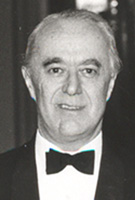
James Johnston Mason Brown OBE, FRCSEd was a Scottish paediatric surgeon. During World War II he served as a surgical specialist with the 8th Army in North Africa and Italy and was awarded the OBE for this service. As surgeon-in-chief at the Royal Hospital for Sick Children in Edinburgh, he edited the major textbook The Surgery of Childhood. He was the joint founder of the Scottish Surgical Paediatric Society and a founder member of the British Association of Paediatric Surgeons (BAPS), of which he became president. He was elected President of the Royal College of Surgeons of Edinburgh (RCSEd) in 1962 but died in office aged 56 years.
Denis Browne Gold Medal is a medal that was first struck in 1968, one year after the death of the paediatric surgeon Denis Browne and is awarded for outstanding contributions to paediatric surgery worldwide and is an honour bestowed by The British Association of Paediatric Surgeons.
Andrea A. Hayes Dixon is an American surgeon. She was the first pediatric surgeon to perform a high-risk, life-saving procedure in children with a rare form of cancer and developed the first orthotropic xenograft model of metastatic Ewing's sarcoma. In 2002, she became the first African American female pediatric surgeon board-certified in the United States.
Herbert Alexander Haxton FRCS FRSE was a Scottish surgeon to the Royal Manchester Children's Hospital and the Manchester North Hospital and Crumpsall Hospital. He contributed to surgical techniques of suturing and investigated the function of the sympathetic nervous system in the sweating conditions hyperhidrosis and gustatory hyperhidrosis.

John Percy Lockhart-Mummery FRCS, was a British surgeon at St Mark's Hospital, London, who devised a classification of rectal cancer and described familial polyposis which led to the formation of the polyposis registry. He was the author of several books, including Diseases of the Rectum and Colon and their Surgical Treatment (1923) and The Origin of Cancer (1934). His work on colorectal surgery earned him the nickname "King Rectum".
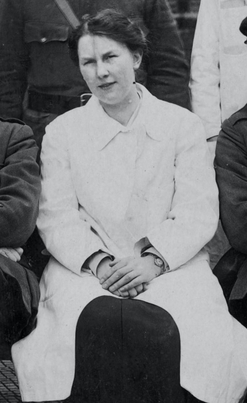
Dulcie Mary Pillers was an English medical illustrator and a founding member of the Medical Artists' Association of Great Britain (MAA). The daughter of a Bristol solicitor, she completed her art training at Kensington Government School of Art, Berkeley Square, Clifton, Bristol, graduating in September 1911 with an Art Class Teachers' Certificate.

The Lifebox Foundation, commonly known as Lifebox, is a non-profit organization that improves the safety of surgery in low-income countries.
References
- 1 2 3 "SurgiCat | Details | Leela Kapila FRCS". surgicat.rcseng.ac.uk. Retrieved 2024-01-06.
- 1 2 3 Basu, Sripurna (2002-12-01). "Leela Kapila: Sripurna Basu talks to this inspirational recently retired paediatric surgeon. (Profile)". Student BMJ: 460–461.
- ↑ Williams, N; Kapila, L (October 1993). "Complications of circumcision". British Journal of Surgery. 80 (10): 1231–1236. doi:10.1002/bjs.1800801005. ISSN 0007-1323. PMID 8242285. S2CID 260551639.
- ↑ "Why men wield the knife". The Guardian. 2001-04-09. ISSN 0261-3077 . Retrieved 2024-01-06.
- ↑ Kapila, Leela (2003-07-01). "You can do it if you really want to". Journal of Pediatric Surgery. 38 (7, Supplement): 33–37. doi:10.1016/S0022-3468(03)00074-5. ISSN 0022-3468. PMID 12866011.
- ↑ "Leela Kapila". Buddleja Collection. Retrieved 2024-01-06.